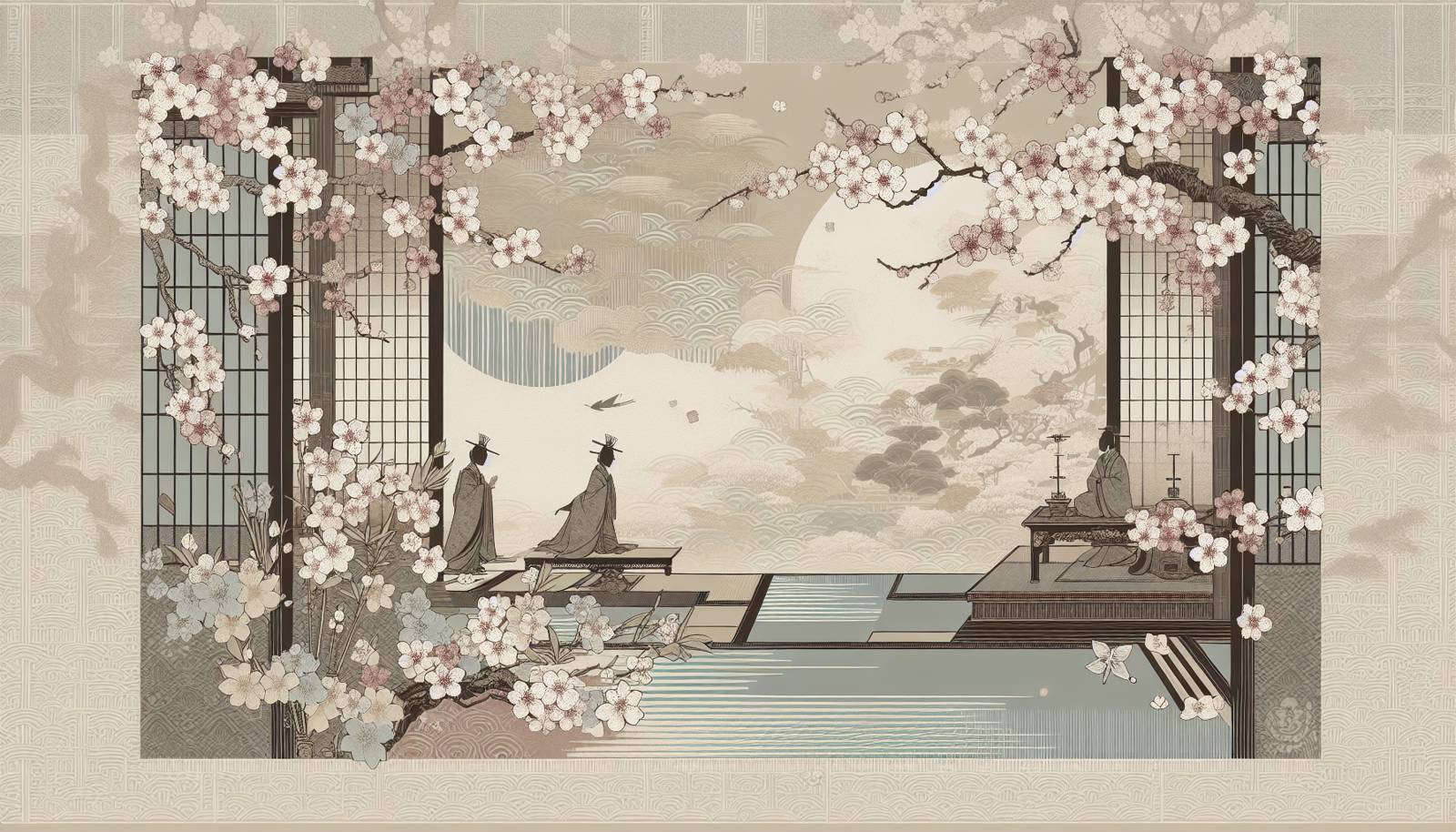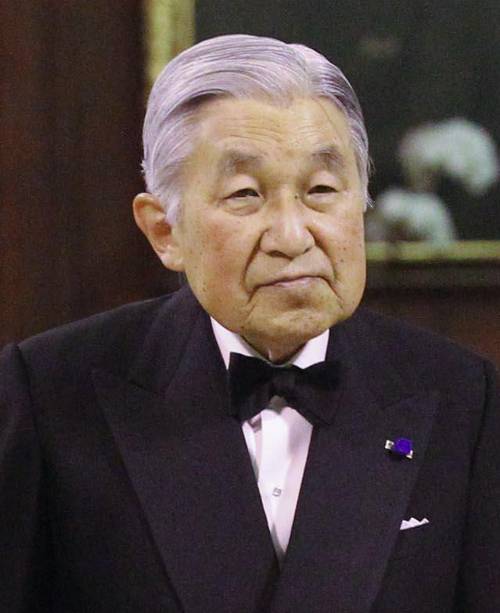
FAQ About Emperor Akihito

Who is Emperor Akihito?
Emperor Akihito is the former Emperor of Japan, having served as the nation's head of state from January 7, 1989, until his abdication on April 30, 2019. He succeeded his father, Emperor Hirohito, also known as Emperor Showa, and thus became the 125th member of the Japanese imperial monarchy.

Why did Emperor Akihito abdicate?
Emperor Akihito abdicated due to his advanced age and declining health, which he expressed in a rare public address in 2016. He highlighted concerns that he might not be able to fulfill his duties effectively as Emperor, leading to his historic abdication, the first in Japan in over two centuries.

What are some of Emperor Akihito's most notable achievements?
Emperor Akihito is recognized for his efforts in bridging relations with former wartime adversaries, modernizing the imperial role, and engaging directly with the Japanese public. His reign was marked by numerous visits to war memorials and gestures of reconciliation, and he actively participated in events commemorating historical tragedies, promoting peace and understanding.

What impact did Emperor Akihito have on the Japanese imperial institution?
Emperor Akihito played a significant role in transforming the Japanese imperial institution into a more approachable and engaged entity. He emphasized the importance of social welfare, supported disaster relief efforts, and made the imperial family more relatable to the general populace. His personal approach to the role helped demystify and modernize the institution.

How did Emperor Akihito contribute to peace-building efforts?
Emperor Akihito contributed to peace-building efforts by making numerous symbolic visits to war memorials, including those in China and South Korea, and expressing remorse for Japan's wartime actions. He worked tirelessly to foster reconciliation and understanding through personal interactions and public statements, reinforcing Japan's commitment to peace.

What is the significance of Emperor Akihito's reign, known as the Heisei era?
The Heisei era, spanning from 1989 to 2019, is significant for its focus on peace and reconciliation, economic challenges, and social change. Emperor Akihito's reign witnessed Japan transitioning through economic stagnation and natural disasters, with his leadership often reflecting resilience and adaptability. The era was marked by a pronounced shift towards international diplomacy and cultural openness.

What was Emperor Akihito's approach to natural disasters in Japan?
Emperor Akihito was deeply committed to supporting victims of natural disasters in Japan. He and Empress Michiko often visited disaster-stricken areas to provide comfort and assurance, emphasizing empathy and solidarity. This approach helped humanize the imperial role and demonstrate the monarchy's concern for the welfare of the Japanese people.

Who succeeded Emperor Akihito after his abdication?
Emperor Akihito was succeeded by his elder son, Emperor Naruhito, who ascended to the Chrysanthemum Throne on May 1, 2019. The transfer of power marked the commencement of the Reiwa era, characterized by a focus on new prosperity and harmony under Emperor Naruhito's leadership.

What changes did Emperor Akihito bring to the Japanese monarchy?
Emperor Akihito introduced a more modern and accessible approach to the Japanese monarchy. He was known for making humanitarian gestures, such as visiting affected areas after natural disasters and promoting international diplomacy. His reign saw efforts to align the imperial family's image with contemporary values and societal needs.

How did Emperor Akihito engage with former wartime adversaries?
Through his reign, Emperor Akihito actively engaged with former wartime adversaries by visiting sites of historical significance in countries such as China and South Korea. He offered words of regret and empathy, aimed at fostering reconciliation and building a framework for mutual respect and understanding between nations.

Has Emperor Akihito made any academic contributions?
Yes, Emperor Akihito has made significant academic contributions, particularly in ichthyology, the study of fish. He has published papers in scientific journals, contributing to the classification and understanding of various fish species, showcasing his dedication to scientific inquiry alongside his imperial duties.

What personal hobbies or interests does Emperor Akihito have?
Emperor Akihito enjoys music and nature-related activities. He is known for playing the cello and having an interest in marine biology, particularly the study of fish. His pursuits highlight his personal passion for both the arts and sciences, reflecting a well-rounded personality.

How did Emperor Akihito and Empress Michiko's relationship influence Japan?
Emperor Akihito and Empress Michiko's relationship, marked by mutual respect and collaboration, influenced Japan by exemplifying a modern imperial couple. Their approachable demeanor and active participation in welfare activities endeared them to the Japanese public, helping to bridge the gap between the monarchy and common citizens.

What languages does Emperor Akihito speak?
Emperor Akihito is proficient in Japanese, his native language, and has a good command of English. His ability to communicate in English has aided his international engagements and facilitated meaningful dialogues with foreign dignitaries and scholars.

What was Emperor Akihito's early life and education like?
Emperor Akihito was born on December 23, 1933, in Tokyo. His early education was influenced by Western teaching styles, and he was privately tutored in various subjects including English. He attended Gakushuin University, where he honed his knowledge in various academic disciplines, laying the foundation for both his future imperial responsibilities and personal interests.

What role did Emperor Akihito play in disaster relief and recovery in Japan?
Emperor Akihito played a significant role in disaster relief and recovery by visiting affected areas, offering condolences, and encouraging resilience and recovery efforts among the Japanese people following major disasters such as the Great Hanshin Earthquake and the Tohoku earthquake and tsunami.

How did Emperor Akihito's reign influence Japanese culture?
Emperor Akihito's reign influenced Japanese culture by promoting values of empathy, peace, and reconciliation. His active engagement in societal issues and humanitarian efforts helped shape a cultural narrative centered around resilience, compassion, and a collective consciousness for historical reflection.

What was the public perception of Emperor Akihito during his reign?
The public perception of Emperor Akihito during his reign was broadly positive. He was regarded as a compassionate and modern monarch who connected deeply with the Japanese people through personal and heartfelt actions. His abdication was seen as a thoughtful decision reflective of his dedication to the dignity of the imperial role.

What are the titles and honors that Emperor Akihito received during his lifetime?
Emperor Akihito has received numerous titles and honors throughout his lifetime, including his imperial title as "Emperor Emeritus" following abdication. He has been awarded honors reflecting his contributions to peace, science, and international relations, such as various diplomatic distinctions and academic recognition.

How did Emperor Akihito's abdication change the Japanese constitution?
Emperor Akihito's abdication necessitated adjustments to Japan's imperial succession laws as the existing constitution did not account for abdication procedures. His abdication prompted the enactment of special one-time legislation to legally enable and guide this process, setting a precedent for potential future abdications within the Japanese monarchy.
